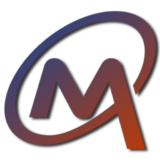Leadership Skills Recruitment 2025: The rapidly evolving Middle East business landscape demands exceptional leadership capabilities that extend far beyond traditional management approaches. Understanding and developing leadership skills in recruitment in 2025 has become essential for organisations seeking to build competitive teams and sustainable growth in the dynamic GCC markets.
The convergence of digital transformation, cultural diversity, and economic diversification across the UAE, Qatar, and the broader Middle East region creates unique leadership challenges that require specialised skills and strategic thinking. Companies that recognise these evolving requirements position themselves for exceptional talent acquisition and organisational success.
At Mahad Group, we’ve witnessed firsthand how leadership skills recruitment 2025 trends are reshaping executive search and team building across diverse industries. The most successful leaders combine traditional business acumen with cultural intelligence, technological fluency, and adaptive strategic thinking that enables success in rapidly changing environments.
Leadership Skills Recruitment 2025: Evolution of Leadership Requirements in GCC Markets
Digital Leadership Competencies
The acceleration of digital transformation across Middle East organisations has fundamentally changed leadership skill requirements. Modern leaders must understand not just business operations but the technological frameworks that enable competitive advantage and operational efficiency.
Leadership Skills Recruitment 2025: Leadership skills recruitment 2025 prioritises candidates who can navigate complex technology implementations while maintaining human-centred approaches that preserve organisational culture and employee engagement. These leaders bridge the gap between technical possibilities and business objectives through strategic vision and communication excellence.
Cloud computing, artificial intelligence, and automation technologies require leaders who can evaluate technical capabilities while making strategic decisions about resource allocation, risk management, and organisational change. This technological fluency becomes essential for effective leadership in modernising GCC economies.
Cybersecurity awareness and data governance understanding have become mandatory leadership competencies as organisations manage increasing amounts of sensitive information while maintaining compliance with evolving regulatory frameworks across different GCC jurisdictions.
Cultural Intelligence and Global Perspective
Leadership Skills Recruitment 2025: The multicultural nature of GCC business environments demands leadership skills recruitment 2025 that emphasises cultural intelligence, cross-cultural communication, and inclusive management approaches that leverage diversity for competitive advantage.
Effective leaders in the Middle East understand how to build teams that combine local market knowledge with international expertise, creating organisations that can compete globally while remaining rooted in regional business practices and cultural values.
Language capabilities, particularly Arabic proficiency combined with English fluency, provide significant advantages for leaders operating in GCC markets. However, cultural understanding often proves more valuable than pure linguistic ability for building effective relationships and organisational success.
Religious and cultural sensitivity enables leaders to create inclusive environments that respect diverse perspectives while maintaining unified organisational vision and performance standards. This balance becomes particularly important during Ramadan, cultural celebrations, and religious observances.
Strategic Leadership Skills for Modern Recruitment
Adaptive Strategic Planning
Leadership Skills Recruitment 2025: Leadership skills recruitment 2025 emphasises candidates who can develop and modify strategies rapidly in response to changing market conditions, regulatory environments, and technological disruptions that characterise modern Middle East business.
Scenario planning capabilities enable leaders to prepare organisations for multiple future possibilities while maintaining operational efficiency and team morale during uncertainty. This strategic thinking proves essential in volatile global economic conditions.
Resource optimisation skills help leaders maximise organisational capabilities while managing cost pressures and competitive challenges. The most effective leaders identify opportunities for efficiency improvements without compromising quality or employee satisfaction.
Innovation management combines creativity with practical implementation capabilities, enabling leaders to foster organisational innovation while ensuring new ideas generate measurable business value and competitive advantages.
Stakeholder Management Excellence
Complex stakeholder ecosystems in GCC markets require leaders who can manage relationships with government agencies, international partners, local communities, and diverse employee populations simultaneously while maintaining strategic focus.
Regulatory navigation skills become essential as Middle East markets implement new business regulations, visa requirements, and industry-specific compliance frameworks that impact organisational operations and strategic planning.
Public-private partnership experience provides valuable capabilities for leaders operating in economies where government initiatives significantly influence business opportunities and strategic direction.
International business development skills enable leaders to leverage the Middle East’s strategic location for global expansion while building relationships across different cultural and regulatory environments.
Industry-Specific Leadership Requirements
Technology and Innovation Sectors
Technology leadership in the Middle East requires understanding both global technology trends and local market applications that address regional challenges while creating scalable business opportunities.
Leadership Skills Recruitment 2025: Leadership skills recruitment 2025 in technology emphasises candidates who can build diverse technical teams while maintaining focus on user experience and business value creation rather than pure technological sophistication.
Product development leadership combines technical understanding with market insight to create solutions that address specific Middle East challenges while appealing to international markets and investor communities.
Startup ecosystem navigation enables leaders to leverage accelerators, venture capital, and government innovation programmes that support technology entrepreneurship across GCC countries.
Financial Services and Banking
Islamic finance expertise has become essential for financial services leadership in the Middle East, requiring an understanding of Sharia-compliant products and services alongside conventional banking and investment approaches.
Regulatory compliance leadership addresses the complex requirements of operating across multiple GCC jurisdictions while maintaining international banking standards and anti-money laundering protocols.
Digital banking transformation requires leaders who can modernise traditional financial services while maintaining customer trust and regulatory compliance in increasingly competitive markets.
Investment management capabilities enable leaders to navigate regional economic diversification while identifying opportunities in emerging sectors like renewable energy, technology, and healthcare.
Healthcare and Life Sciences
Healthcare transformation leadership addresses the rapid modernisation of Middle East healthcare systems while managing cultural sensitivities around medical care and patient privacy.
Leadership Skills Recruitment 2025: Leadership skills recruitment 2025 in healthcare emphasises candidates who can integrate international medical standards with local cultural practices while building diverse medical teams and maintaining quality care.
Medical tourism development requires leaders who understand both healthcare delivery excellence and hospitality management to create comprehensive patient experiences that attract international clients.
Telemedicine and digital health leadership combine medical knowledge with technology understanding to expand healthcare access while maintaining clinical quality and regulatory compliance.
Mahad Group’s Leadership Assessment Framework
Comprehensive Evaluation Methodology
Our proven assessment approach combines behavioural interviewing, situational analysis, and cultural competency evaluation to identify leaders who can succeed in complex Middle East business environments.
Leadership skills recruitment 2025 requires understanding not just professional capabilities but personal attributes that enable success in multicultural, high-pressure environments where adaptability and resilience determine outcomes.
Reference verification includes consultation with former colleagues, supervisors, and subordinates to validate leadership effectiveness across different organisational levels and challenging business situations.
Cultural adaptation assessment evaluates candidates’ ability to integrate successfully into Middle East business culture while maintaining authentic leadership styles that inspire diverse teams.
Strategic Placement Optimization
Market intelligence about compensation expectations, career advancement opportunities, and organisational culture enables optimal matching between exceptional leaders and organisations seeking transformational leadership capabilities.
Onboarding support ensures successful leadership transitions through cultural orientation, stakeholder introduction, and strategic planning assistance that accelerates leader effectiveness and organisational impact.
Ongoing relationship management maintains connections with placed leaders and client organisations to ensure continued success while identifying additional opportunities for organisational development and growth.
Performance tracking and feedback collection enable continuous improvement of our leadership skills recruitment 2025 methodologies while building case studies that demonstrate successful placement outcomes.
Future Leadership Trends and Preparation
Emerging Skill Requirements
Sustainability leadership becomes increasingly important as Middle Eastern organisations embrace environmental responsibility and sustainable development goals while maintaining economic growth and competitiveness.
ESG (Environmental, Social, Governance) expertise enables leaders to navigate investor expectations and regulatory requirements while building organisations that create value for all stakeholders rather than just shareholders.
Remote team management skills prove essential as organisations adopt hybrid work models while maintaining productivity, culture, and collaboration across distributed teams and multiple time zones.
Crisis management capabilities enable leaders to guide organisations through unexpected challenges while maintaining stakeholder confidence and operational continuity during difficult periods.
The evolution of leadership skills recruitment in 2025 reflects the dynamic nature of Middle East business environments, where success requires combining traditional leadership excellence with modern competencies that address technological, cultural, and economic complexity.
Organisations that partner with experienced recruitment specialists like Mahad Group gain access to leaders who possess the rare combination of skills necessary for success in the challenging yet rewarding Middle East market environment.


